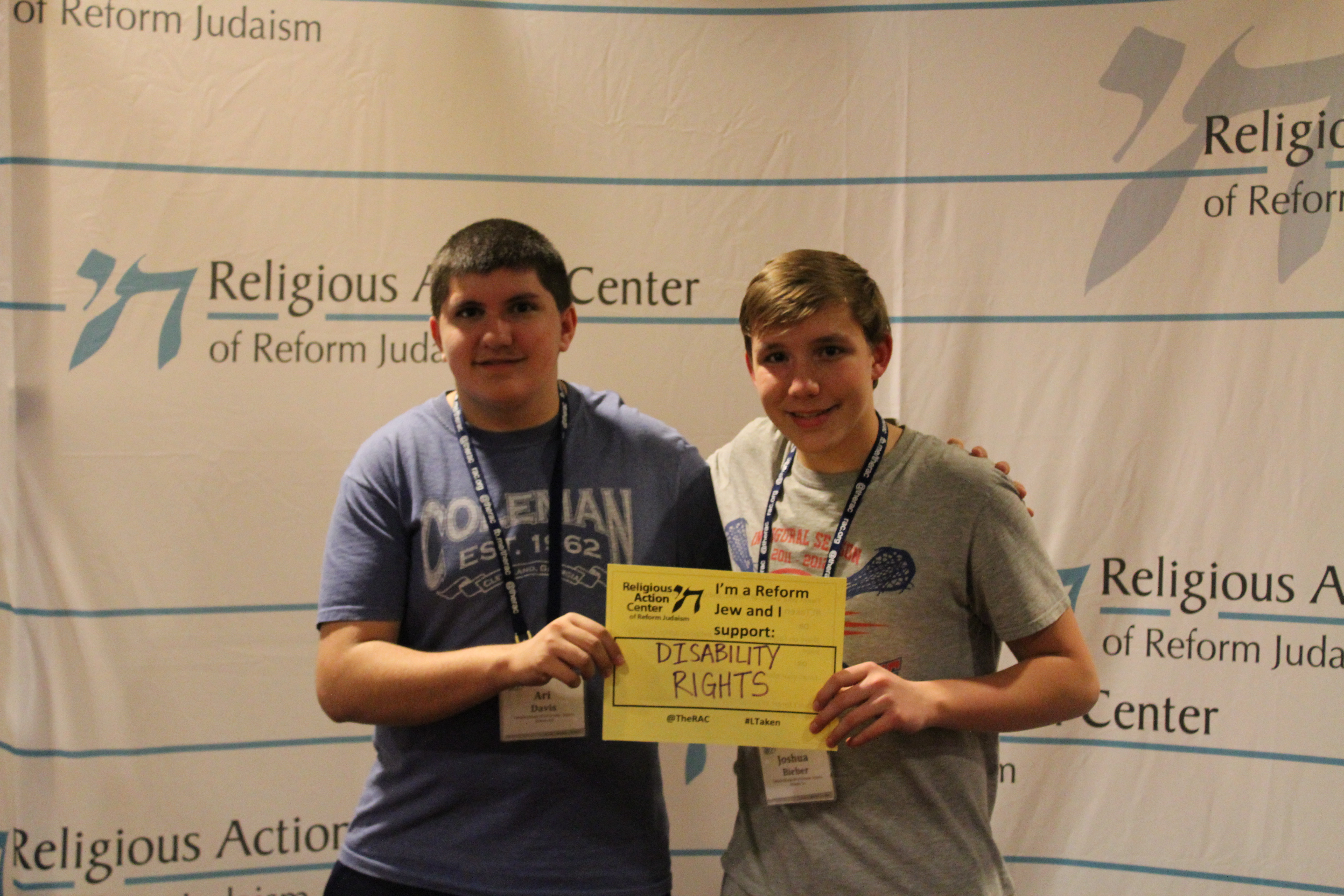
Over the winter, nearly 2,000 Reform Jewish high school students came to Washington, D.C. for the Bernard and Audre Rapaport L’Taken Social Justice Seminar. Here, these students learned how to be effective advocates and to think about how contemporary social justice issues intersect with the values of our Jewish tradition. Ari Davis and Josh Beiber of Temple Emanu-El in California spoke to the staff of Senators Barbara Boxer and Dianne Feinstein, urging support of ratification of the United Nations Convention on the Rights of Persons with Disabilities.
As Reform Jews, we care deeply about the rights of people with disabilities. There is a text in the Torah that reads: “You shall not insult the deaf, or place a stumbling block before the blind.” This text comes from Leviticus and is a part of the holiness code, a code that reminds us how to live in the world. Insulting the deaf is like talking about them behind their backs, or even right in front of them- because they would not be able hear what the other person would be saying. Putting a stumbling block before the blind means is like putting a rock directly in the path of someone who is walking who cannot see it, or like saying something that is not even a part of the conversation that is happening.
The UN Convention on the Rights of Persons with Disabilities (CRPD) seeks to help those who have been challenged, made fun of, and literally blocked from achieving success and independence. We as reform Jews believe that each person in the world is created b’tzelem Elohim. This means that everyone is created in the image of God. Each person, no matter how differently they learn, look, hear, see, speak, or share their thoughts, is equal to each other.
My difficulty with reading began at a young age, when I was in kindergarten. I realized that it took you a long time to read, and other kids realized it too. Soon my parents and my teachers discovered I had dyslexia. A condition that makes it hard to decode words, and even be able to see what a correct letter would be. For example, a B could look like a D. Or I could read something, and understand it to be entirely different in my mind. This made it hard for me to learn, and kids sometimes made fun of me, because I struggled. This did not make me feel great. Today, because of the help I have received from different tutors, therapies and care such as Wilson Reading and Learning Alley I am now a 4.0 student, and I no longer struggle so much with reading. I suffer from other learning challenges as well, like processing, but have been able to overcome these challenges. Ratifying the CRPD would allow others around the world like me, to receive the same care, and be able to overcome similar challenges.
Ari also lives with disabilities. Ari finds it hard to share his thoughts. It often takes him some time to put them together and process them, before he is able to speak them. This has made other kids get mad at him, because they become impatient. He just thinks and shares differently than they do. When this happens he feels sad. In a perfect world, he wishes he didn't have to live with such a thing. He really wishes that kids would be more patient with him, and let him take his time to respond, and listen to him, letting him finish thinking, processing, and speaking before they react. If kids took this one step, he would be able to fully express his thoughts just like they can. The CRPD would help make others aware of what it is like to think differently and process differently. Raising awareness, and showing our support to the world as unified country would help others make things easier for people like me and Ari, who live with and overcome challenges such as these.
Urge your Senators to promote disability rights around the world and ratify the CRPD. You can also visit the RAC’s disability rights page for the latest updates on our advocacy work
Related Posts

Remarks from Rabbi Eliana Fischel at Jewish Gathering for Abortion Access

Teens from North Carolina Speak About Environmental Justice

